SUMMARY
This is AI generated summarization, which may have errors. For context, always refer to the full article.
![[OPINION] Mother Tongue-based education and our Indigenous Peoples](https://www.rappler.com/tachyon/2023/02/20230222-international-mother-language-day.jpg)
Along with the commemoration of International Mother Language Day this February and the International Decade of Indigenous Languages from 2022 to 2032, the 240 members of the Philippine House of Representatives approved last February 6, 2023, House Bill 6727, which suspends the use of the mother tongue as a medium of instruction in schools.
In defending the said House bill, the authors argue for several reasons, such as the schools not being ready to implement mother tongue-based education, which led to their assumed infectivity of the program (despite the fact that experts and researchers said otherwise). This excuse is ridiculous because the government’s failure to fulfill its responsibility to prepare and support schools for mother tongue-based education implementation, as stated in RA 10533, a law passed by Congress itself, is passed on to the people, particularly the learners, to suffer. In addition, we know this action in the House of Representatives is politically motivated. One of the items on the agenda mentioned by the current president during his first State of the Nation Address is the continuous re-examination of our medium of instruction to maintain our advantage as an English-speaking people.
Based on these, two conclusions can be deduced. First, as long as the government is still looking at the advantage of English in an economy that is driven by selling human labor abroad, our schools will never be truly supported to implement MTB-MLE. Second, the knowledge of our legislators is still very limited about MTB-MLE, especially the role it can play in our multilingual-multicultural country, such as the promotion of rights and the inclusion of Indigenous Peoples.
According to Republic Act No. 8371, or the Indigenous Peoples’ Rights Act (IPRA) of 1997, Indigenous Peoples “refer to a group of people or homogenous societies identified by self-ascription and ascription by others, who have continuously lived as organized communities on communally bounded and defined territory, and who have, under claims of ownership since time immemorial, occupied, possessed, and utilized such territories, sharing common bonds of language, customs, traditions, and other distinctive cultural traits, or who, through resistance to political, social, and cultural inroads of colonization, non-indigenous religions and cultures, became historically differentiated from the majority of Filipinos.”
Aside from an infographic of the Philippine Statistics Authority’s 2020 census that reveals that 6.6% of Filipinos are Indigenous Persons according to this definition, there are no other latest figures on the population of Indigenous Peoples, although they are present in the country’s 65 out of 78 provinces. The absence of statistics is proof that Indigenous Peoples’ welfare is not among the aspects looked at when analyzing Philippine population structure. This is a possible reason why mother tongue education is not well considered: their number is too small — a minority — to be considered by this country, which only regards a majority.
Nevertheless, as the Philippine Constitution and RA 8371 officially and legally recognize Indigenous Peoples, regardless of their minority status, the government is duty-bound to promote their rights. Mother tongue education, which House Bill 6717 tries to suspend, supports IP rights as provided in Section 30 of IPRA, referring to Indigenous Peoples’ right to an education in their own language and in a manner appropriate to their cultural methods of teaching and learning, and in Department of Education Order No. 62, s. 2011 Adopting the National Indigenous Peoples Education Policy Framework, which explicitly mentions Mother Tongue-Based Multilingual Education as a priority program for development and implementation.
As MTB-MLE aligns with the law and policies mentioned above, it plays the following strategic roles in the promotion and revitalization of indigenous communities.
First, MTB-MLE, as a program that utilizes learners’ first language in schools and lets children learn their communities’ unique vocabulary, grammar, and expressions, can help sustain cultural traditions, knowledge, practices, history, and ways of life. As evidence, it was only during MTB-MLE that teaching-learning materials and literatures on these were actively developed.
Second, as it provides opportunities for Indigenous learners to freely speak and learn the language that reflects their own community, MTB-MLE provides for developed self-identity and increased self-esteem, which are important in the practice of indigineity.
Third, as Indigenous languages have words that encompass the interconnectedness of all things in nature, or the idea that all living beings have a spirit or life force, MTB-MLE supports the spiritual and cultural well-being of Indigenous learners and communities independently of pain caused by possible memories or effects of evangelization in their communities.
Fourth, because MTB-MLE is based on the community language, the community, especially the cultural bearers and community elders, has more active participation in the teaching and learning of Indigenous learners. It also allows for the exchange of ideas, stories, and information, which are critical for community building and cohesion, and communication between elders and youth, enabling the transfer of traditional knowledge and values.
And fifth, by starting with the mother tongue, the Indigenous learners will have the skill of more effective communication in their community and the skill to also learn other languages, as one of the objectives of MTB-MLE is effective second language acquisition.
Additionally, as the law and the policies mentioned consistently recognize language as a type of human right that was denied by the previous bilingual policy in education that caused exclusion and inequality.
During the previous bilingual policy, schools only focused on teaching Filipino and English. There is no place in schools for learners to formally speak and learn the language of their community. As a result, materials and literatures in other languages, aside from Filipino and English, did not develop. Studies as well reveal a decrease in the number of speakers of different languages in the country, as speakers cannot find their language’s relevance to and support from the wider society and, at the same time, experience discrimination when speaking their language. Even the government, for so long that its only focus was the use of Filipino and English, has become an instrument of exclusion for speakers of other languages in the Philippines. The language of the civil service, justice system, health care, and social service is English, sometimes Filipino. The national anthem of the country cannot be sung in other languages of the country, according to the Philippine Heraldic Code. Even the 1987 Philippine Constitution, which, according to its Article IV, Section 8, should be translated into different languages of the country has not been promulgated up to now.
While the rest of Filipinos who are speakers of languages other than Filipino and English also experienced the same, for Indigenous Peoples who suffer from racial discrimination, land grabbing, and displacement from their ancestral domain that led to the loss of their livelihoods, culture, and traditional practices, keeping them from speaking their language is another form of control that might already strangle them.
As we commemorate International Mother Language Day and the International Decade of Indigenous Languages, we pray for this government, so used to controlling how people think and speak, to accept a mother tongue-based multilingual policy that allows our peoples — our Indigenous as the rest of the Filipino learners — to learn through their own mother tongues. – Rappler.com
Leonardo D. Tejano is a teacher in Mariano Marcos State University.
Add a comment
How does this make you feel?
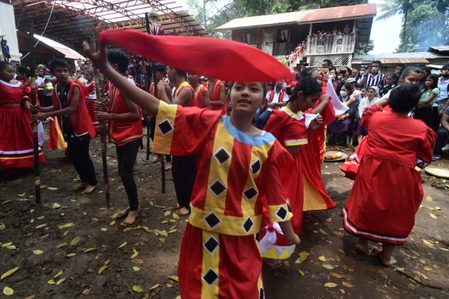
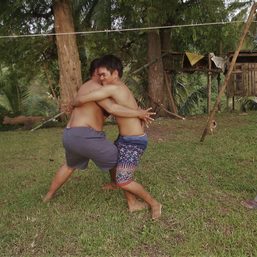

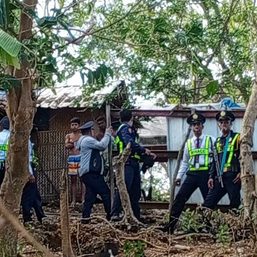
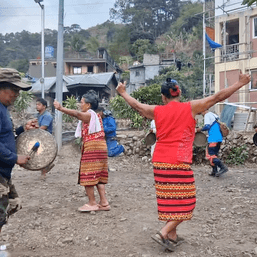
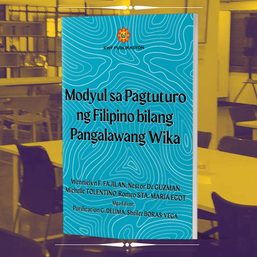

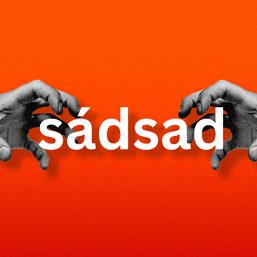


There are no comments yet. Add your comment to start the conversation.